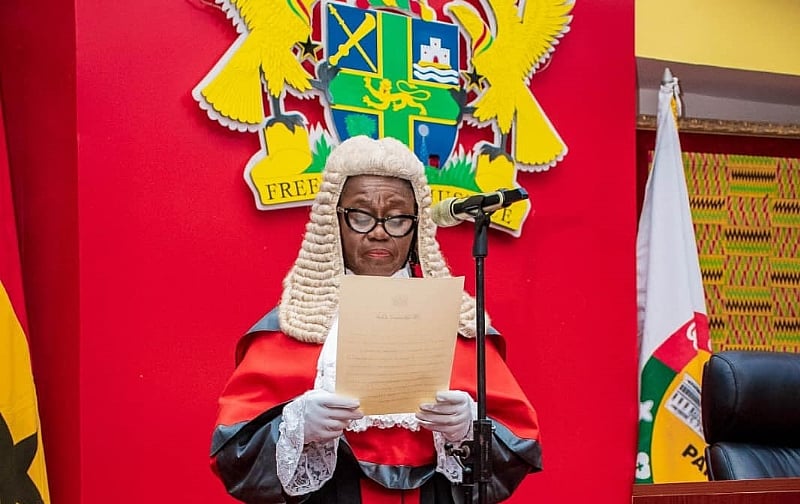The Impending Demonstration: A Clash of Powers and Perspectives
The political landscape of Ghana is bracing for a significant showdown as four political parties – the New Patriotic Party (NPP), Liberal Party of Ghana (LPG), National Democratic Party (NDP), and People’s National Party (PNP) – prepare to stage a demonstration against the removal of Chief Justice Gertrude Sackey Torkornoo. The planned protest, scheduled for May 5, 2025, is poised to be a major expression of dissent against the government’s decision, which the organizers deem politically motivated and a threat to the independence of the judiciary. The parties have officially notified the police of their intent to demonstrate peacefully, outlining a route that begins opposite the Supreme Court, proceeds through Parliament House, and culminates at the Jubilee House, the seat of the presidency, where a petition will be presented.
The removal of Chief Justice Torkornoo stems from three petitions alleging misconduct, leading President John Dramani Mahama to suspend her on April 22, 2025, after a prima facie case was established. This action, taken under Article 146(6) of the 1992 Constitution and following consultations with the Council of State, has sparked controversy and ignited the political opposition. A five-member committee has been formed to investigate the allegations against the Chief Justice, but the protesting parties view the entire process as a calculated move to undermine judicial independence and erode public trust in the rule of law.
The organizers of the demonstration, spearheaded by the NPP, argue that the removal of the Chief Justice is a blatant attack on Ghana’s democratic principles. They believe the government is manipulating the system to achieve political ends, thereby jeopardizing the delicate balance of power between the executive and judicial branches. The demonstration serves as a platform to voice their concerns and pressure the government to reconsider its actions. Leaders of the four participating parties are set to convene on April 28, 2025, to finalize their strategy for the demonstration and ensure its effectiveness in conveying their message to the government and the public.
The protest is not without its critics, who question its relevance and timing. Some argue that the demonstration could be perceived as an attempt to interfere with the ongoing investigation and prejudice the outcome. However, proponents of the demonstration, including Alhaji Mohammed Frimpong, the NDP’s flagbearer in the 2024 General Election, maintain that the protest is crucial to safeguarding Ghana’s democracy. They contend that the government’s actions set a dangerous precedent, potentially emboldening future attempts to manipulate the judiciary for political gain.
The planned demonstration underscores the deep-seated tensions between the ruling government and the opposition parties. The clash of perspectives highlights the fundamental importance of an independent judiciary in a democratic society and the need for transparency and accountability in all governmental processes. The outcome of the investigation, as well as the impact of the demonstration, will undoubtedly shape the future of Ghana’s political landscape and the balance of power within its institutions. The demonstration is not merely a protest against the removal of a single individual; it represents a broader struggle to protect the integrity of the judiciary and uphold the principles of democratic governance.
The demonstration, therefore, is a critical moment in Ghana’s political history. It will test the government’s commitment to democratic principles and the strength of the opposition’s resolve to protect those principles. The outcome will have far-reaching implications for the future of the country’s democracy and the relationship between the executive and judicial branches. The eyes of the nation are on this unfolding political drama, as citizens await the resolution of this constitutional crisis and the potential ramifications for the future of Ghana’s governance. The events of the coming days will undoubtedly shape the narrative of Ghana’s democratic journey and determine the degree to which its institutions can withstand political pressure.














